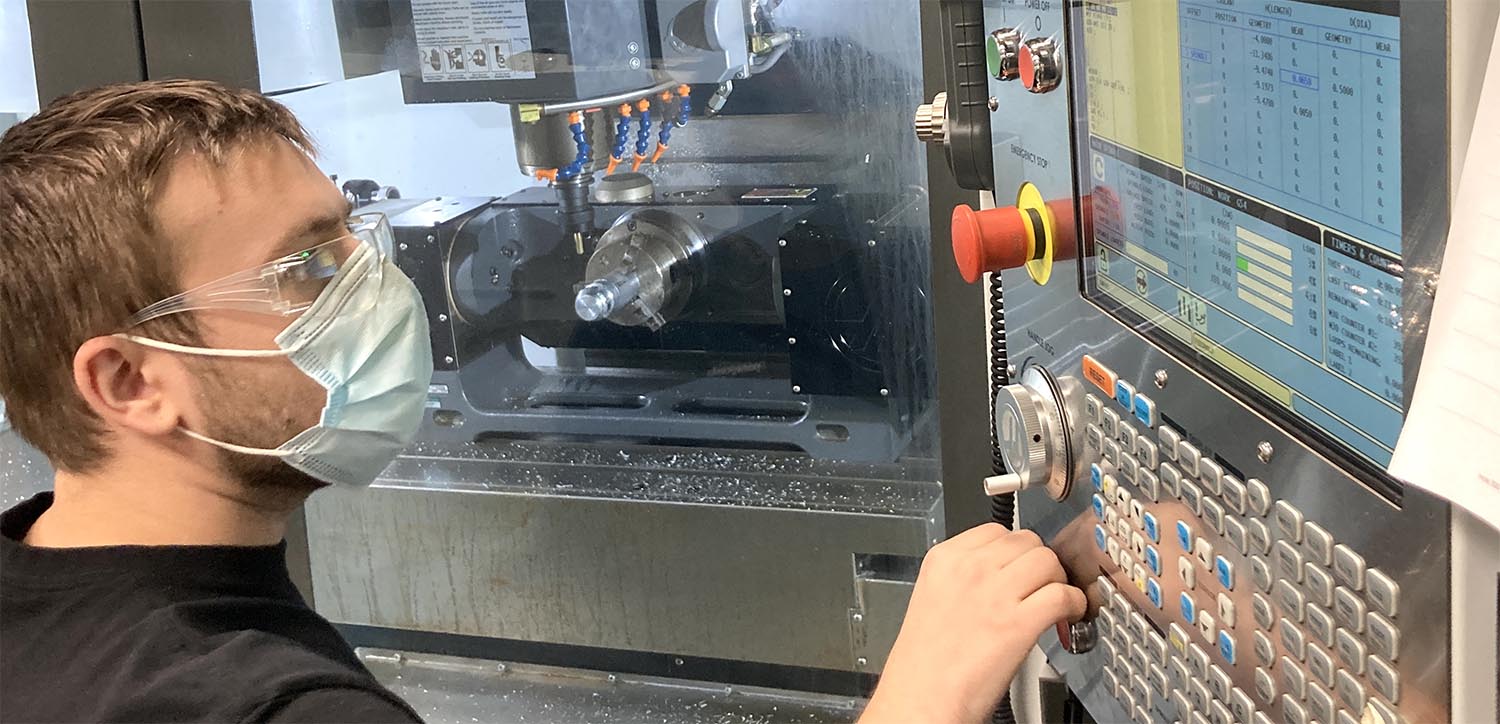Making Things and Making Things Work
Welcome to the Advanced Manufacturing Technology (AMT) Department at Washtenaw Community College. If you like making things, learning how things work and making machines work for you… if you like working with the latest technology and working with your hands AND your brain, one of our programs may put you on the path to a rewarding and productive career.
The AMT department consists of several disciplines, Mechatronics, Robotics, CNC Machining, traditional machining, Fluid Power, Electricity and Electronics. Students who graduate from our programs obtain jobs as Mechatronics Technicians, Robotics Technicians, Machine Repair Technicians, Industrial Electricians, CNC Machinists and a range of other positions. They work in industries as diverse as automotive manufacturing, robot workcell development, industrial electronics, renewable energy, water treatment and agriculture. Students need only high school completion level math, reading and writing to get started, though many of our students have additional specialized high school education or work experience in manufacturing or a related field. You are welcome to take our classes as part of a full associate degree, or certificates or individual classes.
We emphasize hands-on learning paired with theory, so you are prepared to do useful work right out of school as well as absorb new knowledge and solve new problems on your own. Almost all of our classes include significant practical lab components.
Our labs are filled with the same equipment you will use in industry:
- Robotics (Fanuc and ABB)
- Electrical test equipment – digital oscilloscopes, function generators and multimeters
- Programmable Logic Controllers (Allen Bradley and Siemens PLCs)
- Haas and Prototrak CNC Mills and Lathes
- Zoller Presetter and Tooling Management System
- 3D printers
- Workcell simulation software, 3D modeling, CAD/CAM
- Fluid power (pneumatic, hydraulic)
- 3 phase, single phase and synchronous motors
- DC motors and generators
- Variable frequency drives and motor control circuits
- Semiconductor and Battery Manufacturing skills
- Industry 4.0 skills embedded throughout academic programs
- 5S Workplace Organization
- Lean Manufacturing concepts
We are looking forward to meeting you, showing you our labs and seeing how our programs can meet your needs.

Helpful Resources
The International Fluid Power Society (IFPS) is a nonprofit 501(c)(3) professional organization of individuals dedicated to enhancing the quality of certifications, educational opportunities, technology evolution, and professionalism within the fluid power and motion control industry.
The Industrial Internet of Things (IIoT): the business guide to Industrial IoT
A complete guide about IIoT (the Industrial Internet of Things or Industrial IoT) with definitions, market evolutions, use cases, standardization efforts, challenges and strategic approaches across the globe.
